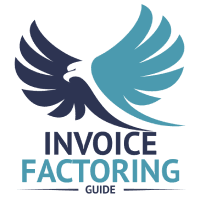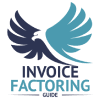
More than half of all small businesses say they use credit cards on a regular basis, according to the latest Small Business Credit Survey. They top the list of small business financing options, beating out loans by a three-point margin. But, are they really the best choice for your growing company? On this page, we’ll explore credit cards vs. factoring, touching on the costs and benefits of each and why SMEs are making the shift to factoring today.
How Business Credit Cards Work
Before we get into the credit cards vs. factoring debate, it’s essential to understand how each option works. Let’s start with credit cards.
Application Process
- Credit Check: When applying for a business credit card, your business’s credit history, or your personal credit if your business is new, will be reviewed. Lenders will look at factors like your credit score, payment history, and financial stability.
- Approval and Credit Limit: Once approved, the lender assigns a credit limit based on your creditworthiness. This limit defines the maximum amount you can spend.
Using the Credit Card
- Purchases: You can use the card for everyday expenses, from buying inventory to paying for travel. It’s a revolving line of credit, so you can spend up to your credit limit and repay in full or over time.
- Rewards and Perks: Many business credit cards offer rewards like cashback, points, or travel benefits, which can be a bonus if you’re making regular purchases.
Interest and Fees
- Interest Rates: If you don’t pay off the full balance by the due date, you’ll incur interest on the remaining amount. Interest rates on business credit cards can range anywhere from 13 to 25 percent or more, depending on the card and your credit profile.
- Fees: Additional fees might include annual fees, late payment fees, or foreign transaction fees if you use the card for international purchases.
Payments

- Minimum Payment: Each month, you’ll need to make at least the minimum payment, which is a small percentage of your total balance. If you only pay the minimum, interest starts adding up.
- Full Payment: To avoid interest charges, you can pay the entire balance by the due date. This is where many small businesses get tripped up. If cash flow is tight, it’s tempting to carry a balance, but that can lead to high-interest debt over time.
Impact on Your Credit
- On-Time Payments: Regular, on-time payments build your business credit score or personal score if that’s tied to the card. A strong credit history opens up other financing options down the road.
- Carrying a Balance: While carrying a balance isn’t necessarily bad, it can impact your credit utilization ratio. If you’re using a large percentage of your credit limit, it could lower your score.
Repayment Cycle
- Revolving Credit: The key feature of a credit card is its revolving nature. Once you repay what you owe, the funds become available again. This differs from other types of loans, where you pay off a fixed amount over time.
Additional Considerations
- Personal Guarantee: Many business credit cards require a personal guarantee, meaning you’re liable for the debt if your business can’t pay it off.
- Rewards Management: While rewards can be great, letting those perks sway your spending habits is easy, leading to overspending or unnecessary purchases just to earn points.
How Invoice Factoring Works
Next, let’s take a look at the flip side and explore how factoring works.
Setting Up a Factoring Agreement
- Choosing a Factor: First, you select a factoring company, also called a “factor.” We can match you with a factoring company to streamline this process.
- Approval: The factoring company will assess your business and clients, looking more closely at your customers’ creditworthiness than your own financials.
- Submitting Invoices: After setting up an agreement, you send your unpaid invoices to the factor. These invoices will serve as the collateral for the advance you’ll receive.
The Advance
- Immediate Cash: Once the factor verifies the invoices, they advance you a percentage of the invoice value, typically 60 to 95 percent. This gives you quick access to cash flow to cover expenses, payroll, or other needs without waiting for your clients to pay.
- Advance Rate: The advance rate depends on factors like the industry you’re in, the risk associated with your customers, and the terms you’ve negotiated with the factoring company.
Factoring Fees
- Service Fees: The factor charges a fee for this service, usually based on a percentage of the invoice total. The fee typically ranges from one to five percent of an invoice, depending on the factoring terms and how long your customers take to pay.
- Additional Fees: In some cases, there may be additional fees for things like wire transfers, credit checks, or administrative costs, but this varies by provider.
Customer Interaction
- Notifying Your Clients: The factor may notify your customers that their invoices have been sold, and payment will now go to the factoring company directly. Factors often handle collections entirely on your behalf, which can lighten your administrative load.
- Non-Recourse vs. Recourse Factoring: With non-recourse factoring, the factor takes on the risk if a customer doesn’t pay. With recourse factoring, your business is still responsible for any unpaid invoices.
Invoice Collection
- Payment to the Factor: Your customer will pay the factor directly based on the invoice terms. The factor collects the full invoice amount.
- Remaining Balance (The Reserve): After the customer pays, the factor will send you the remaining balance of the invoice, minus their fee. This is referred to as the “reserve.”
Getting Paid the Balance
- Releasing the Reserve: Once the factor receives payment from your client, they release the remaining five to 40 percent (the reserve) back to your business, minus any fees owed to the factoring company.
Repeat Cycle
- Revolving Funding: As long as you have new invoices to factor, the cycle continues. Unlike a credit card where you’re adding debt, factoring lets you continuously turn your receivables into cash, fueling your operations as your business grows.
- Spot Factoring: While many businesses submit most or all of their invoices for factoring, others leverage “spot factoring” and factor selectively as needed.
Impact on Credit
- No Additional Debt: Because factoring isn’t a loan, it doesn’t affect your business’s credit profile the same way credit cards or traditional loans do. In fact, factors don’t usually report to credit bureaus, which helps maintain your credit standing.
- Potential Credit Score Increases: Factoring can make it easier for you to keep up with payments and doesn’t increase your credit utilization rate, which can help increase your credit rating.
Additional Considerations
- Customer Creditworthiness: With factoring, the factor cares more about your customers’ ability to pay than your own creditworthiness. If your customers have good credit and reliable payment histories, you can get better rates.
- Flexible Limits: Factoring grows with your business. As your sales increase and you generate more invoices, your access to working capital can expand—unlike credit cards, which may have fixed limits.
- Industry-Specific Factors: Factoring is popular in industries with longer payment terms, like trucking, manufacturing, or construction. If you’re dealing with slow-paying customers, factoring can smooth out your cash flow.
Credit Cards vs. Factoring: Why SMEs Are Making a Shift
Now that we’ve covered how both solutions work, let’s take a look at why SMEs are opting for factoring over using their credit cards.

Getting Approved for Factoring is Often Easier Than a Credit Card
When it comes to accessing funds for your business, approval for factoring is typically far easier than for a credit card. Why? It all boils down to who’s being evaluated. With credit cards, the lender is focused on your business’s creditworthiness—or sometimes even your personal credit if your business is newer or lacks history. And the reality? Roughly one in five credit card applications is denied, according to Money magazine. That’s a lot of businesses being turned away, especially startups or those with inconsistent revenue.
Why Factoring is Different
- Customer Credit, Not Yours: Factoring companies care more about your customers’ ability to pay their invoices than your own credit score. So, even if your business is young or has hit some bumps in the road, it’s your customers’ payment reliability that matters.
- Minimal Financial Requirements: Unlike credit cards, which might require a certain revenue threshold or a spotless credit history, factoring mainly requires that you have unpaid invoices from creditworthy clients. You’re not borrowing money, so factors aren’t taking on the same level of risk a bank would with a credit card.
- Faster Approval Process: Many factoring companies can approve your business and provide cash within a few days. There’s no lengthy application process, credit check, or business financial audit—just a straightforward review of your invoices and clients.
The Cost of Factoring is Typically Lower Than Credit Cards
When comparing credit cards to factoring, one of the biggest advantages factoring holds is cost. While both offer ways to access working capital, credit cards often come with hidden costs that can sneak up on you, especially if you carry a balance from month to month.
Why Factoring is Often the Cheaper Option
- High Interest Rates on Credit Cards: Credit card interest rates typically range between 13 and 25 percent, depending on your credit score and the type of card you have. If you’re carrying a balance over time, those interest charges can snowball, eating into your cash flow. Many business owners find themselves paying more in interest than the original amount they borrowed.
- Factoring Fees Are Predictable: Factoring fees usually range from one to five percent per invoice. The fee depends on factors like the size of the invoice, your industry, and how long your customer takes to pay. But here’s the key difference. Factoring fees are fixed, so there’s no accumulation of debt or compounding interest like there is with a credit card.
- Credit Card Fees Add Up: Beyond interest, credit cards often come with other fees, such as annual fees, late payment fees, over-limit fees, and even foreign transaction fees. These small costs can add up quickly, making credit cards an expensive way to finance your business. Factoring, on the other hand, tends to have more transparent and straightforward fee structures.
Factoring Does Not Create Debt
One of the biggest advantages of factoring over credit cards and other types of financing is that factoring doesn’t create debt. It’s a cash flow solution, not a loan, which can have a huge impact on how you manage your business’s finances.
Why This Matters
- No Repayment Obligations: With factoring, you’re selling your invoices in exchange for immediate cash. There’s no repayment plan, no interest building up, and no worry about paying off a balance at the end of the month. You’re simply getting the money that’s already owed to you, just faster.
- Avoiding Debt on Your Balance Sheet: Every time you use a credit card, you’re adding debt to your business’s balance sheet. While that might be manageable for small purchases, over time, this can hurt your financial ratios and make it harder to qualify for other types of financing like a loan. Factoring doesn’t show up as debt because you’re not borrowing.
- Easier Cash Flow Management: Factoring helps smooth out cash flow without the burden of repayment schedules. Instead of worrying about paying back what you’ve borrowed, like with credit cards, you can focus on managing your day-to-day operations.
Credit Limits Are Higher with Factoring
One of the biggest frustrations businesses face with credit cards is hitting their credit limit, especially when your spending needs outpace what your credit card company is willing to offer. Factoring, on the other hand, provides much higher limits.
Why Factoring Offers More Flexibility with Credit Limits
- Higher Cash Availability: With factoring, your available “credit” is directly tied to the value of your outstanding invoices. This can easily surpass a typical credit card limit, which is often capped at tens of thousands of dollars. For businesses dealing with high-value clients or large orders, factoring can provide access to hundreds of thousands, or even millions, of dollars, depending on the scale of your sales.
- Avoid Credit Utilization Concerns: Credit cards are tied to credit utilization ratios, meaning if you use a large portion of your available credit, it could hurt your credit score. With factoring, because it’s not traditional debt, you avoid these utilization issues while still accessing a higher amount of working capital.
Factoring Provides More Flexible Growth Support
One of the most attractive benefits of factoring is how well it adapts to the growth of your business. Unlike other financing options that have fixed limits or require a lengthy approval process to increase your borrowing capacity, factoring scales seamlessly as your business grows.
How Factoring Supports Your Growth
- Scales with Sales: Factoring is directly tied to your accounts receivable, meaning the more sales you make, the more working capital you can access. Unlike a credit card that has a fixed credit limit, factoring grows naturally with your business. As long as you’re generating invoices from creditworthy clients, you have access to more cash without needing to reapply for larger credit lines.
- No Need for Re-Approval: Traditional financing often requires reapplying or going through a cumbersome process to increase your credit limit or loan amount. Factoring skips that hassle—there’s no need to renegotiate or submit new paperwork as your business grows. Your factoring limit adjusts automatically as you generate more invoices.
- Supports Large Orders and New Clients: If your business suddenly lands a large order or brings in new clients with significant invoice volumes, factoring can provide the cash flow support you need right away. Instead of waiting for customer payments or dealing with credit card restrictions, factoring delivers quick capital to handle big opportunities.
- Fueling Expansion Without Debt: Growing businesses often need extra cash to cover larger expenses—inventory, staffing, or equipment—especially as they expand. Because factoring isn’t a loan, you’re not taking on additional debt to fuel this growth. It allows you to manage your expanding needs while keeping your balance sheet clean.
You Receive Collections Support with Factoring
One of the often-overlooked benefits of factoring is the built-in collections support. Managing unpaid invoices can be a time-consuming hassle for businesses, especially when cash flow is tight. Factoring not only gives you quick access to cash but also provides assistance with the collection process, which can lighten your administrative burden and improve overall cash flow.
How Factoring Helps with Collections
- Factoring Companies Handle Collections: When you factor an invoice, the factoring company often takes on the responsibility of collecting payment from your customers. This means you don’t have to spend time and energy chasing down payments. Instead, you can focus on running your business while the factor manages the collections process.
- Professional Collections Team: Many factoring companies have a professional collections team that follows up with your clients, ensuring they pay on time. They handle everything from sending reminders to dealing with late payments, which can improve your cash flow and free up your internal resources.
- Reduces Strain on Client Relationships: Collections can strain relationships with your customers, especially when you’re following up repeatedly about overdue invoices. With factoring, the factor steps in as an intermediary. This can take the pressure off your relationship, allowing you to maintain a positive rapport while still ensuring you get paid.
- Improves Cash Flow Predictability: Knowing that your collections are being handled by the factoring company makes your cash flow more predictable. You can plan for the future more confidently, knowing that collections won’t disrupt your operations or delay your access to working capital.
Factoring Can Reduce Bad Debt
For many businesses, unpaid invoices aren’t just a cash flow issue. They can lead to bad debt, which directly impacts your bottom line. Factoring offers a way to reduce this risk through careful credit checks and the option for non-recourse factoring, which can protect you from customers who fail to pay.
How Factoring Helps Reduce Bad Debt
- Credit Checks on Customers: Factoring companies typically conduct thorough credit checks on your customers before approving invoices for factoring. This means you get an extra layer of insight into the creditworthiness of the clients to whom you’re extending terms. By leveraging the factor’s credit expertise, you can make more informed decisions about which customers to offer credit terms to, reducing the chances of getting stuck with non-paying clients.
- Smarter Credit Extensions: With the factor assessing your customers’ payment reliability, you can avoid extending credit to clients who pose a high risk of defaulting. This helps you avoid bad debt before it even happens, making your business’s credit policies more strategic and informed.
- Non-Recourse Factoring Option: Non-recourse factoring takes risk reduction a step further. With this option, the factoring company assumes the risk if your customer doesn’t pay the invoice due to insolvency or bankruptcy. In other words, if your customer can’t pay, you’re not liable for the unpaid amount, so bad debt can be avoided completely. This provides peace of mind, especially when dealing with high-risk or new clients.
- Lower Bad Debt Write-Offs: Because factoring companies evaluate the credit risk of your customers and can offer non-recourse options, your business is less likely to encounter situations where you need to write off bad debt. Over time, this means more consistent revenue and fewer financial surprises.
Factoring Companies Can Become Partners in Growth
Unlike credit cards, which offer a purely transactional relationship, factoring companies can become long-term partners in your business’s growth. While credit cards simply provide access to funds, factoring companies are often more invested in the health and future of your business, offering support beyond just cash flow solutions.
How Factoring Companies Act as Growth Partners
- Dedicated Account Managers: Many factoring companies assign a dedicated account manager to your business. This individual isn’t just processing transactions. They’re there to understand your business’s specific needs and offer tailored advice. Whether you’re expanding, facing cash flow challenges, or dealing with a difficult client, your account manager can provide insights and guidance that go beyond simply managing your invoices.
- Broader Funding Solutions: Factoring companies often offer more than just invoice factoring. Some also provide additional forms of financing, such as equipment funding or lines of credit. These funding options can help you grow your business without turning to high-interest credit cards or bank loans, allowing for more flexibility as your needs evolve.
- Industry-Specific Perks: Many factoring companies specialize in certain industries, and they cater to their clients with value-added services. For example, factoring companies working with trucking businesses might offer fuel cards or discounts on maintenance and fuel costs, helping you save money and manage your operations more efficiently. These kinds of industry-specific perks can give your business an edge, something you won’t get with a standard credit card.
- Support for Growth Strategies: Because factoring companies make money as your business grows and generates more invoices, they’re often invested in your long-term success. This can make them a valuable partner in planning your growth strategy. Instead of worrying about reaching a credit limit, you can focus on expanding your operations, knowing that your factoring partner is ready to support you with increased funding as your sales increase.
- Administrative Support: Some factoring companies offer additional administrative services, like invoice creation or managing your accounts receivable, which can take a load off your team. These services allow you to focus on core business activities while leaving the back-office work to the factoring company.
Make the Shift to Factoring
Factoring offers flexible, debt-free financing, higher credit limits, and valuable growth support that credit cards simply can’t match. If you’re to improve your cash flow, we will match you with a factoring company that fits your needs. Kickstart your shift to factoring with a complimentary rate quote.
Credit Cards vs. Factoring FAQs
How does factoring compare to credit cards as an alternative financing option?
Factoring provides immediate cash based on invoices, while credit cards offer a revolving line of credit. Factoring doesn’t create debt, so you avoid accumulating interest. Credit cards require repayment of balances, often with high interest rates. Factoring companies may offer additional services, like collections support, which credit cards don’t provide. In general, factoring is better suited for businesses with large, unpaid receivables, while credit cards are more appropriate for small, recurring expenses or short-term needs.
How can factoring reduce the risk of bad debt in today’s credit markets?
Factoring companies conduct credit checks on your customers, helping you make smarter decisions about who to extend credit to. This reduces the chances of non-payment. Additionally, non-recourse factoring eliminates bad debt risk by ensuring that the factor assumes the responsibility if a customer becomes insolvent. In challenging credit markets, this is especially valuable since you can continue operations without worrying about bad debt, even if your customers struggle to pay.
Can factoring help my business grow faster than other alternative financing methods?
Yes, factoring provides immediate access to cash tied to your receivables, which means you can reinvest in your business without waiting for payments. Unlike credit cards or traditional loans, factoring grows with your sales, as the more invoices you generate, the more funding you can access. This allows your cash flow to scale naturally with your business, fueling growth without taking on debt. Other alternative financing methods may have fixed limits or require extensive approval processes.
Why is factoring considered a better option for improving cash flow compared to other financing options in tight credit markets?
Factoring provides quick cash without adding debt, which is critical when credit markets are tight. Since approval is based on your customers' credit rather than your own, it’s easier to access funds when traditional financing options might be unavailable or restrictive. This makes factoring a dependable solution for businesses in industries with longer payment terms or unpredictable cash flow. It also eliminates the need to rely on costly credit card debt or loans.
How does factoring work as an alternative financing solution for businesses with poor credit?
Factoring focuses on the creditworthiness of your customers, not your business’s credit score. If your customers have strong payment histories, you can access funds even if your credit is less than stellar. This makes factoring an attractive alternative financing option for businesses with poor credit that still need working capital. It’s especially useful for startups or growing businesses that might not qualify for traditional loans or credit cards.
Is factoring more expensive than using a business credit card?
Factoring fees typically range from one to five percent of an invoice’s value, while credit card interest rates can be as high as 25 percent or more. The actual cost depends on the terms of the factoring agreement and how quickly customers pay their invoices. While factoring isn’t free, it often ends up being cheaper than credit card interest, especially if you carry a credit card balance long-term. Factoring also includes value-added services like collections, which credit cards don’t provide.
What types of businesses benefit the most from factoring as an alternative financing option?
Businesses in industries with long payment cycles, such as trucking, construction, and manufacturing, benefit most from factoring. Companies that have cash tied up in unpaid invoices but need immediate working capital to cover expenses, payroll, or expansion costs are ideal candidates. Startups or businesses with poor credit also find factoring beneficial, as approval depends on customers' creditworthiness. Factoring is especially helpful for businesses experiencing growth but facing cash flow gaps due to delayed customer payments.
How do factoring companies help with collections and customer payments?
Factoring companies often take over the responsibility of collecting payments from your customers. This service includes sending invoices, following up on overdue payments, and managing the entire collections process. This not only improves cash flow but also reduces the administrative burden on your business. Additionally, it helps maintain client relationships since the factoring company acts as a neutral third party in handling payment reminders, freeing you from those awkward conversations.
Why do factoring companies provide better credit limits than business credit cards?
Factoring companies base their funding limits on your invoice volume, so as your sales grow, so does your available cash flow. In contrast, credit card limits are usually fixed and based on your business’s credit score or financial history. Factoring offers significantly higher limits because the credit risk is tied to your customers, not your business. This means businesses can access more capital through factoring than with a traditional credit card, allowing for greater flexibility.

About Invoice Factoring Guide
Related Articles
Get an instant funding estimate
Results are estimates based on the calculated rate and the total invoice amount provided.
Actual rates may vary.
Request a Factoring Rate Quote
PREFER TO TALK? Call us at 1-844-887-0300










